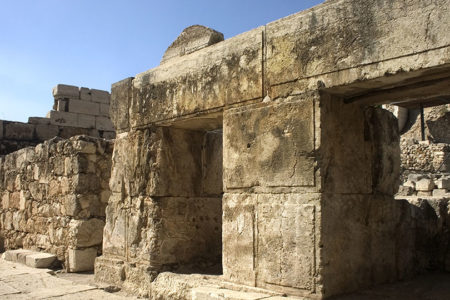The Beginning of PA Denial
The Palestinian Authority’s (PA’s) political denial of the Jewish Temple’s existence first came to international attention at the Camp David II Summit in July 2000. In a final effort to resolve the Israeli-Palestinian conflict, U.S. President Bill Clinton carefully orchestrated a meeting between Israeli Prime Minister Ehud Barak and PA Chairman Yasser Arafat at Camp David atop Catoctin Mountain in Maryland. A chief topic was the status of Jerusalem.
Barak had agreed to Palestinian sovereignty over the Temple Mount, asking only that it be recognized that under the ground lay the historic remains of the Jewish people’s ancient Temple. Arafat walked away from the summit stating he would never “acknowledge the existence of a so-called Temple.”
Israel’s offer (with the same conditions) was again stated at a follow-up meeting held in January 2001 at Taba in the Sinai peninsula. Again Palestinian authorities refused.
In an interview afterward with Ari Shavit in Haaretz, Israel’s then-Foreign Minister Shlomo Ben-Ami gave insight as to how entrenched the Palestinian leaders are in revisionist history:
What particularly outraged me on that occasion wasn’t only the fact that they refused, but the way in which they refused: out of a kind of total contempt, an attitude of dismissiveness and arrogance. At that moment I grasped they are really not Sadat [Egyptian president Anwar Sadat, who signed a peace treaty with Israel in 1979]. That they were not willing to move toward our position even at the emotional and symbolic level. At the deepest level, they are not ready to recognize that we have any kind of title here.






